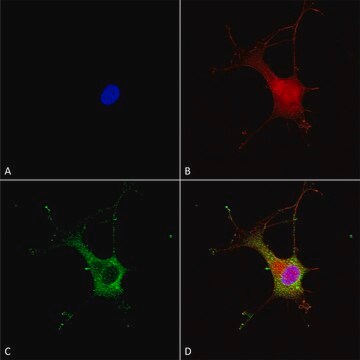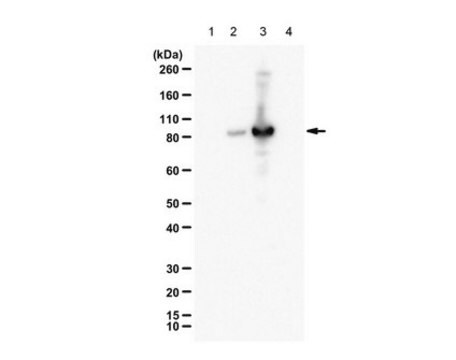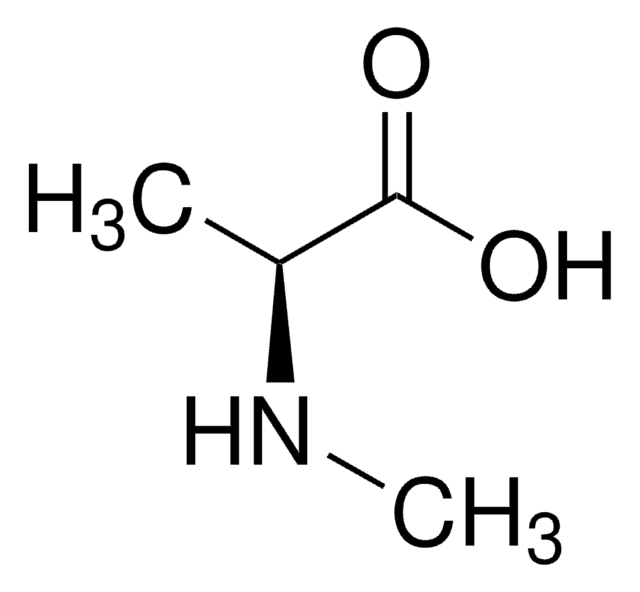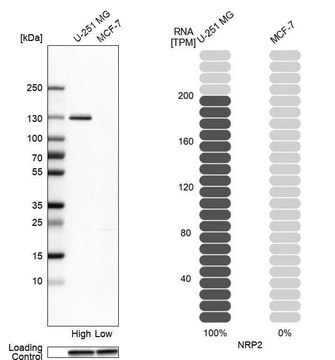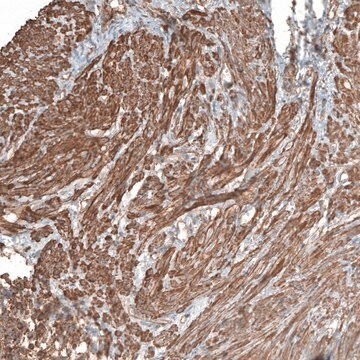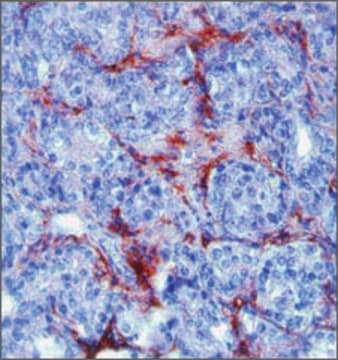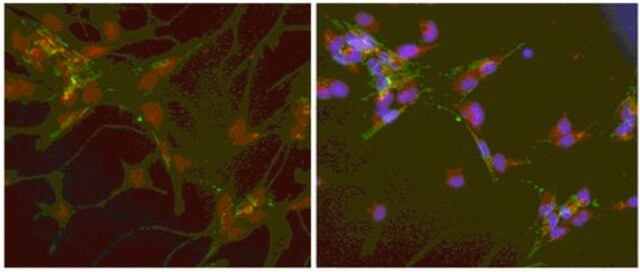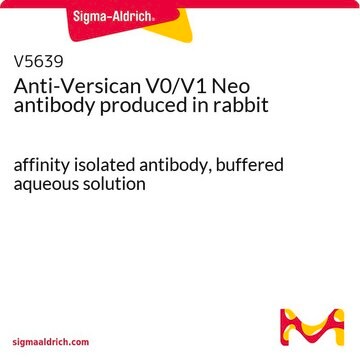ABN1000
Anti-MAGL Antibody
from rabbit, purified by affinity chromatography
Sinônimo(s):
Monoglyceride lipase, MGL, Monoacylglycerol lipase, MAGL
About This Item
Produtos recomendados
fonte biológica
rabbit
Nível de qualidade
forma do anticorpo
affinity isolated antibody
tipo de produto de anticorpo
primary antibodies
clone
polyclonal
purificado por
affinity chromatography
reatividade de espécies
human, mouse, rat
técnica(s)
immunohistochemistry: suitable
western blot: suitable
nº de adesão NCBI
nº de adesão UniProt
Condições de expedição
wet ice
modificação pós-traducional do alvo
unmodified
Informações sobre genes
human ... MGLL(11343)
Descrição geral
Imunogênio
Aplicação
Immunohistochemistry Analysis: A representative lot detected MAGL in human hippocampus tissue (Mulder, J., et al. (2011). Brain. 134:1041-1060).
Neuroscience
Developmental Signaling
Qualidade
Western Blotting Analysis: 0.5 µg/mL of this antibody detected MAGL in 10 µg of mouse brain tissue lysate.
Descrição-alvo
forma física
Armazenamento e estabilidade
Outras notas
Exoneração de responsabilidade
Não está encontrando o produto certo?
Experimente o nosso Ferramenta de seleção de produtos.
Código de classe de armazenamento
12 - Non Combustible Liquids
Classe de risco de água (WGK)
WGK 1
Ponto de fulgor (°F)
Not applicable
Ponto de fulgor (°C)
Not applicable
Certificados de análise (COA)
Busque Certificados de análise (COA) digitando o Número do Lote do produto. Os números de lote e remessa podem ser encontrados no rótulo de um produto após a palavra “Lot” ou “Batch”.
Já possui este produto?
Encontre a documentação dos produtos que você adquiriu recentemente na biblioteca de documentos.
Nossa equipe de cientistas tem experiência em todas as áreas de pesquisa, incluindo Life Sciences, ciência de materiais, síntese química, cromatografia, química analítica e muitas outras.
Entre em contato com a assistência técnica